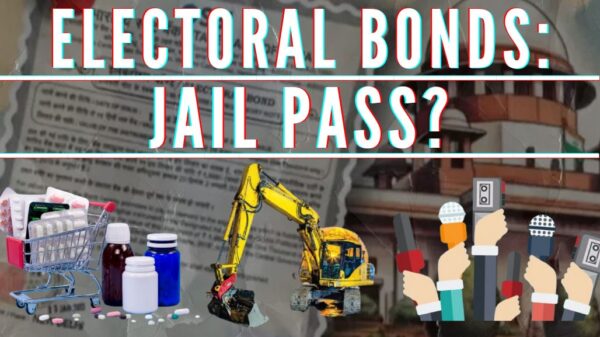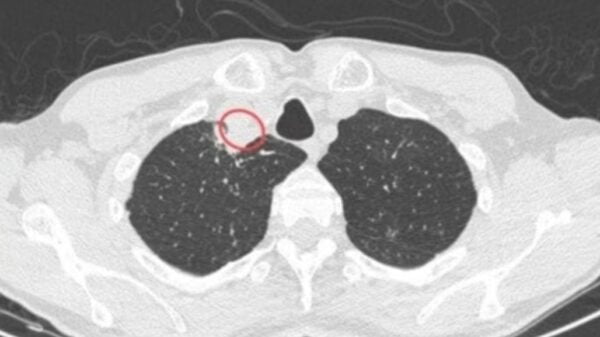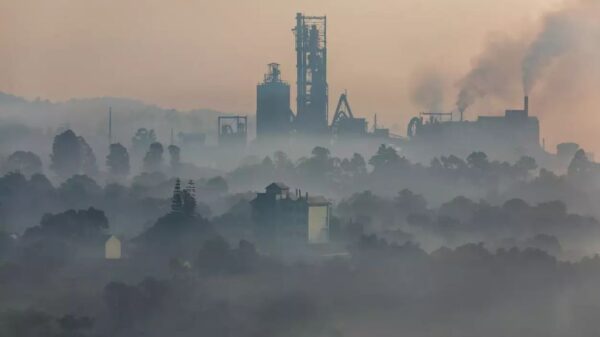BENGALURU: Karnataka is all set to establish its first Registered Vehicle Scrapping Facility (RVSF) in Devanahalli, marking a significant milestone for the state. While India boasts over 60 RVSFs, this will be the first of its kind in Karnataka. In the near future, government vehicles older than 15 years and those failing fitness tests will find their end at this facility.
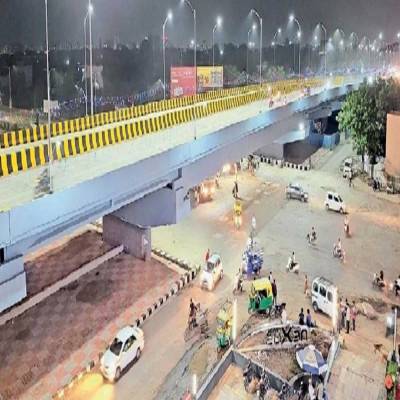
Source: Construction World
The Karnataka State Transport Department has granted approval to Mahindra MSTC Recycling Pvt Ltd to establish this scrapping facility, where citizens can voluntarily retire their old and unfit vehicles. Transport Commissioner Yogeesh AM emphasized the importance of this initiative, saying, “The vehicle scrappage policy is a win-win for all stakeholders. It creates an ecosystem to phase out unfit and polluting vehicles from state roads, necessitating state-of-the-art scrapping and recycling units.”

Source: The Economic Times
The mandate ensures that vehicles can only be scrapped at RVSFs and not by local scrap dealers, eliminating unscientific methods. The department estimates that approximately 15 lakh vehicles in Karnataka are eligible for scrapping. However, concerns have been raised about potential corruption, and experts and citizens are calling for clear processes to ensure transparency in fitness certificate issuance.
Emissions: An Environmental Threat
As the world grapples with a looming climate crisis, India has committed to achieving net-zero emissions by 2070. To fulfill this promise, it is imperative to take stringent measures, such as adopting clean and renewable energy, promoting public transportation, and embracing fuel-efficient vehicles with advanced technologies. Scrapping vehicles older than 15 years and those unfit for the road is a commendable step toward this goal, according to Akshay Heblikar, director of Eco-Watch.
Heblikar highlighted the harmful gasses emitted by vehicles, including carbon dioxide (CO2), which contributes significantly to global warming. Additionally, carbon monoxide (CO) negatively affects the body’s ability to absorb oxygen, and the transport sector is a major contributor to India’s Particulate Matter (PM) pollution. Apart from reducing emissions, recycling scrap material from old vehicles offers an eco-friendly source of raw material for the steel industry, promoting a circular economy.
Scrapping old and unfit vehicles not only reduces emissions but also conserves fuel, as new vehicles are more technologically advanced and fuel-efficient. Maintaining old vehicles incurs higher costs and resource consumption compared to newer models, Heblikar noted, adding that well-maintained vehicles with controlled emissions need not be scrapped.
Aiming for Fewer Vehicles
While the scrapping policy addresses the issue of unfit and polluting vehicles, the ultimate objective should be reducing the overall number of motor vehicles on the roads. Shreya Gadepalli, an urban mobility expert, suggested following France’s lead, where vehicle owners are incentivized to opt for electric bicycles instead of purchasing new cars.
Electric bicycles, she argued, are not only greener than electric scooters and cars but also offer health benefits. Furthermore, Gadepalli emphasized the urgent need for a reliable, comfortable, and affordable bus service, which could encourage people to retire their old vehicles and embrace car-free lives.
Assessing the Impact of Vehicle Scrapping
Prof. D Rajasekhar, Director of the Institute of Social and Economic Change (ISEC), pointed out that the primary goal of scrapping vehicles is to stimulate the purchase of new cars and create space for fresh vehicles in the market. This policy is expected to boost automobile sales, generate economic benefits, create jobs, and increase tax revenue for the government.
However, the used car market may face challenges as vehicle prices are likely to drop significantly with the increase in scrapping. For instance, a ten-year-old car currently selling for Rs 2 lakh in the second-hand market may decrease to Rs 1 lakh as scrapping gains momentum. The impact of scrapping vehicles, pollution reduction, and other factors will require careful evaluation.
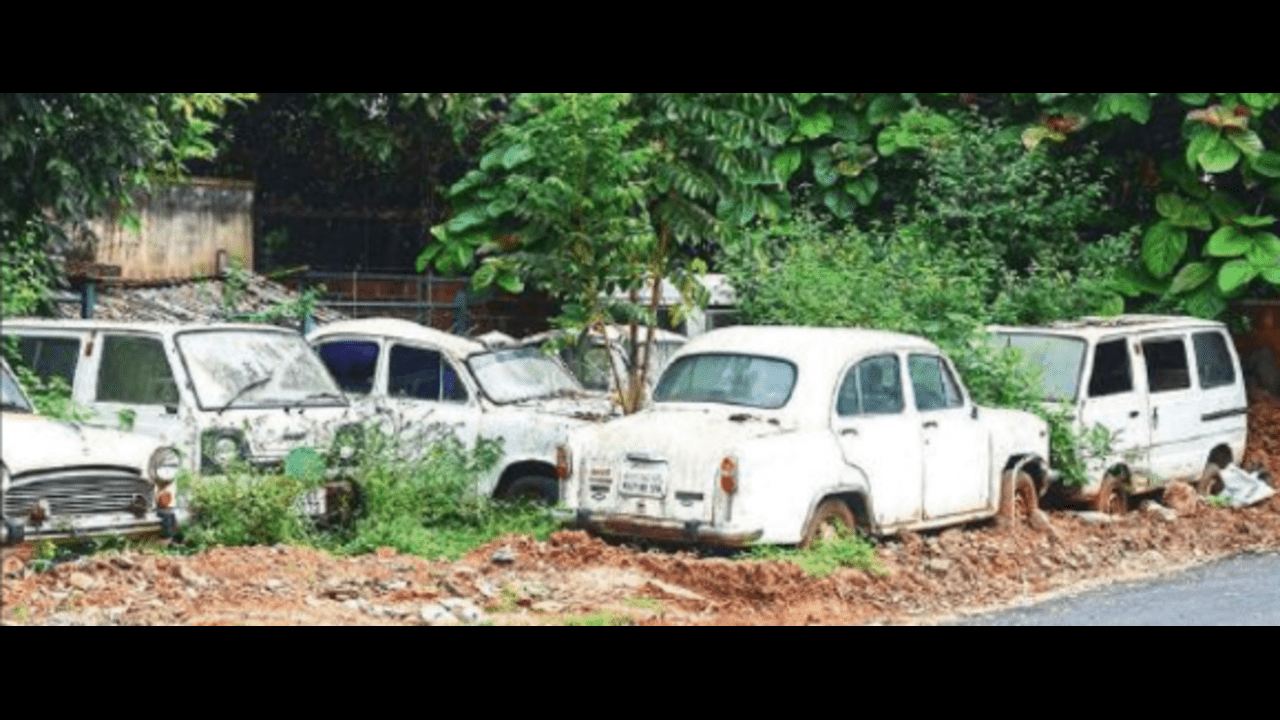
Source: Times of India
Criteria for Vehicle Scrapping
Vehicles eligible for scrapping include those that have not renewed their Certificate of Registration (RC) and have failed the fitness test. Additionally, government-owned vehicles, aged 15 years and above, as well as those damaged due to various factors, can be scrapped. Manufacturing rejects, test vehicles, prototypes, and vehicles damaged during transportation are also candidates for scrapping, as are auctioned, impounded, or abandoned vehicles. Lastly, vehicle owners can voluntarily offer their vehicles for scrapping.
Fitness Test Requirements
Commercial vehicles must undergo an annual fitness test at Automated Testing Stations at Regional Transport Offices (RTOs) to renew their registration. Failing the test results in scrapping, motivating commercial vehicle owners to invest in maintenance to control emissions.
Private vehicles, on the other hand, must undergo a fitness test at their respective RTOs after 15 years. Successful tests lead to registration renewal for another five years, with repeated tests required every five years.
Locating Your RVSF
To locate the nearest Registered Vehicle Scrapping Facility (RVSF), citizens can visit the Vaahan portal.
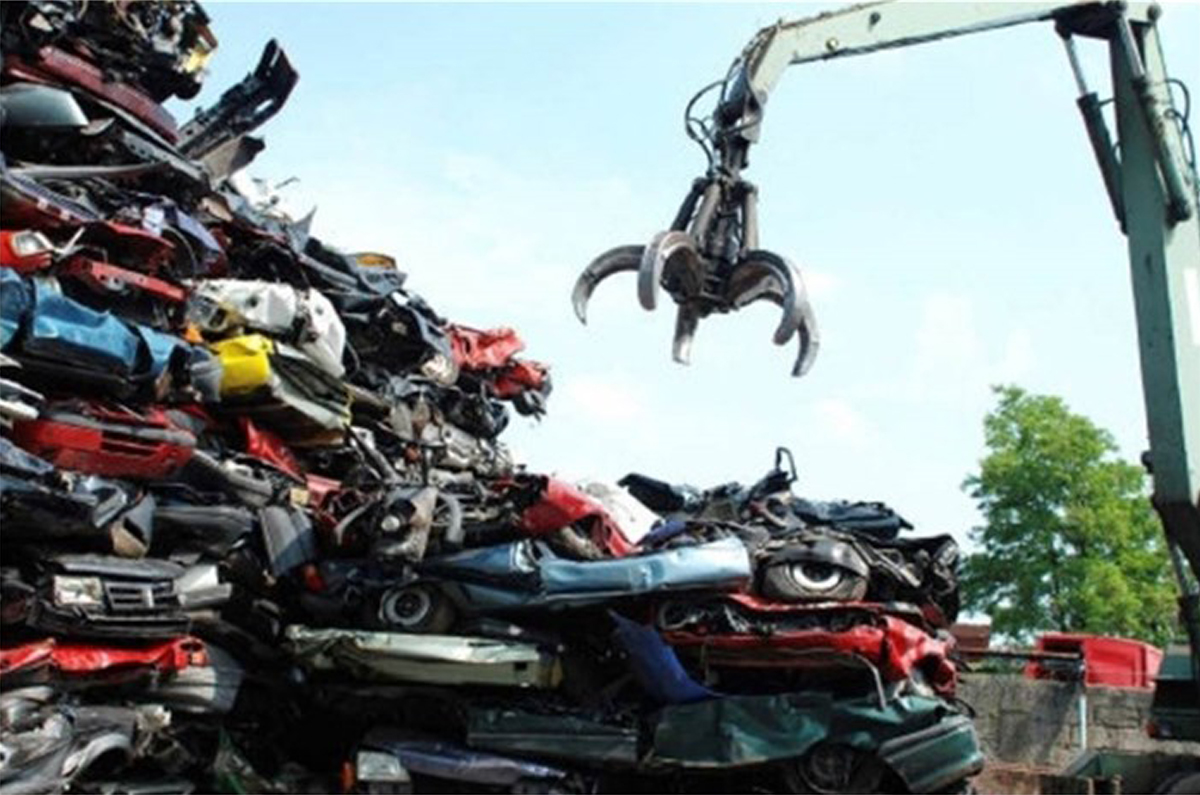
Source: Autocar India
The Scrapping Process
Before scrapping, vehicle owners must ensure there are no pending police cases, traffic fines, or legal issues related to their vehicles. The RVSF then applies for the vehicle’s de-registration with the RTO, and once approved, the vehicle undergoes an eco-friendly scrapping process, including the proper disposal of hazardous waste. Each component, such as tires, glass, plastic, grease, oil, and metal, is separated and recycled or disposed of responsibly.
Utilizing COD for Tax Concessions
The Certificate of Deposit (COD) serves as evidence of vehicle ownership transfer and allows owners to avail of incentives and benefits for purchasing new vehicles, as per government declarations. Under the Karnataka Registered Vehicle Scrapping Policy of 2022, motor vehicle tax concessions of 25 percent for non-transport vehicles and 15 percent for transport vehicles are available for up to 8 years and 15 years, respectively. Unused CODs can also be traded.
Scrapping Government Vehicles
Karnataka has approximately 15,000 government vehicles aged over 15 years that require scrapping. Given their essential roles in departments like fire services, police, and water supply, officials have suggested a phased approach to scrapping these vehicles to avoid disruptions to critical services.



















































